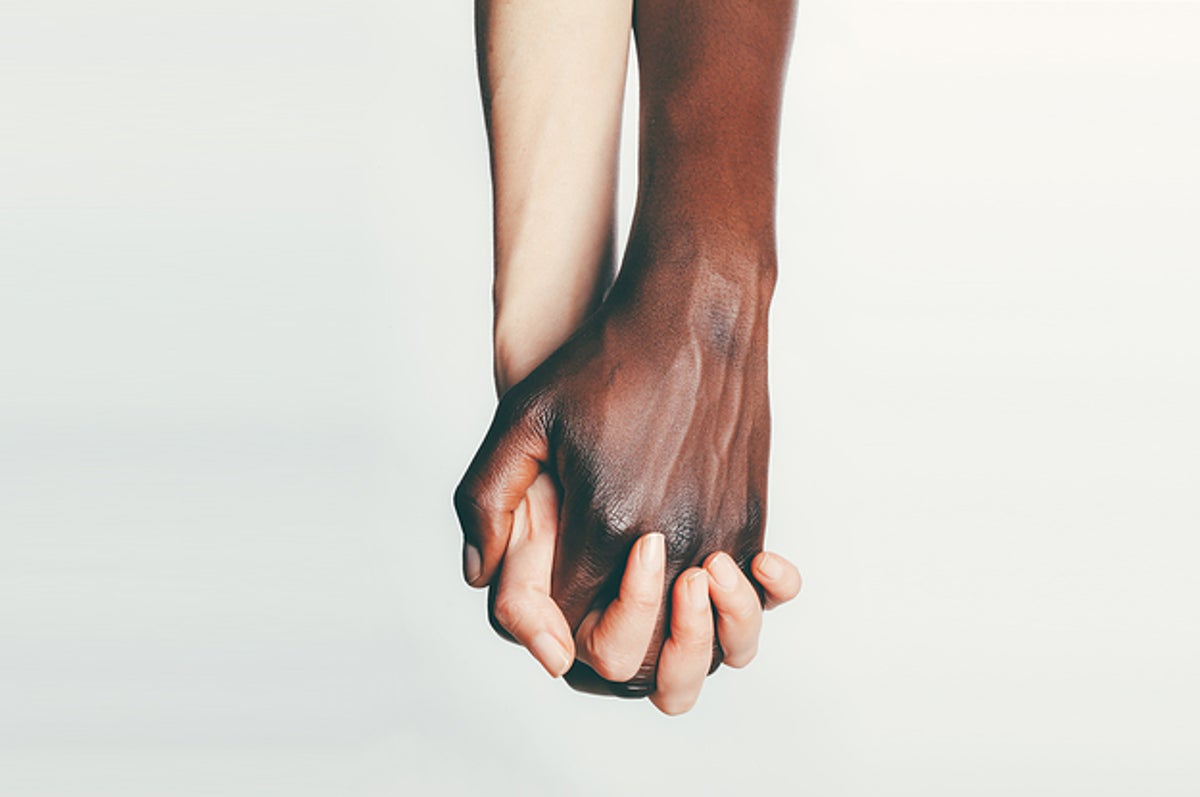States
Interracial Relationships May Not Always Reduce Racial Prejudice

Interracial Relationships May Not Always Reduce Racial Prejudice:
Despite the 1967 Loving v. Commonwealth of Virginia Supreme Court judgment that legalized interracial marriage, Rice University and Texas A&M University scholars found a disturbing fact. The study, “Mixing races, maintaining racism? Considering the connection between interracial families, social distance, and racial inequality,” found that interracial relationships have not eliminated racial biases and stereotypes, particularly among Black people.
The fact that deep interracial friendships and sexual partnerships have not eliminated racial preconceptions is surprising. Interestingly, the research indicated that white persons with deep Black connections may still display anti-black racism, seeing their Black friends as exceptions to their opinions about the Black community. These results show that although progress has been achieved, prejudice is deeply ingrained and cannot be eliminated by interracial marriages.
The Impact Of Online Dating Preferences
The story is further complicated by internet dating racial prejudices. Research on online dating racial preferences shows that some people restrict partners by race. Even interracial daters may unwittingly exhibit racial preconceptions. This shows that racism is engrained in our culture, even in progressive online dating.
Close interracial relationships may also flourish by avoiding race and inequality concerns. Survey respondents avoid discussing racial problems in these partnerships, indicating discomfort.
Challenges Within Extended Families
The findings imply that interracial marriage may not increase extended family openness. It typically leads to harsher censure from classmates and extended relatives. This criticism is especially obvious when grandkids are involved in interracial marriages.
White moms of mixed children reported less family support than same-race couples. This troubling trend underlines the need for a more significant public discussion on interracial marriages and racial prejudices.
Perceptions Of Normalization
Interracial partnerships are thought to normalize interaction and reduce extended family racial prejudices. Reality doesn’t always match this notion. Interracial couples may encounter extra obstacles from peers and extended family, and their presence may not be enough to transcend racial understanding and acceptance.
In actuality, interracial relationship normalization varies greatly across families and social groupings. Some families welcome their mixed relations, while others are uncomfortable. Interracial couples aren’t the only factor in fighting racial stereotypes; people and communities must also be ready to address their biases and misunderstandings.
Family Support Disparities
Racial variations in family support for interracial relationships, especially when grandkids are involved, show societal divisions. White moms with mixed children reported less family support than same-race couples, according to the research. This saddens me, demonstrating that racial prejudices and change resistance remain even in families.
These differences show the problems interracial couples encounter and highlight the necessity to tackle racial prejudices in families and society. Interracial couples’ extended families’ support—or lack thereof—influences their children’s upbringing, possibly perpetuating or challenging racial preconceptions.
The Intersection Of Race And Socioeconomic Status
Interracial couples encounter additional racism issues when considering socioeconomic class. Lower-income interracial couples may struggle more due to racial and economic discrimination. The research shows these couples encounter problems that might impair their well-being and their children’s.
Race and financial position show how prejudice is interrelated. Low-income interracial couples may face racial stereotypes and economic differences that restrict their resources and support. A multiracial and socioeconomic strategy is needed to address these issues and create a more equal and inclusive society.
Family dynamics and financial obstacles of interracial couples show the intricacies of interracial partnerships and racism. The research shows that open communication, support networks, and social awareness are needed to counteract racial prejudices and foster peace.
Challenging Stereotypes Within Interracial Relationships
Interracial partnerships may challenge and break down racial preconceptions. These relationships defy compatibility cultural, and racial stereotypes. The research shows that some interracial couples sustain racial prejudices despite their participation.
This paradox shows how prejudices remain and how difficult it is to overcome them. People may perceive their relationship as an exception, perpetuating interracial couple stereotypes. To address these prejudices in interracial partnerships, education, and awareness are crucial.
The Role Of Education And Advocacy
The complicated concerns of racism in interracial partnerships need education and activism. The research highlights the need for focused initiatives to raise awareness and understanding of these couples’ issues. Families and communities need safe areas to debate racism, inequality, and prejudice.
To end systematic racism, family-level treatments and social reforms are needed. Policy improvements, public awareness, and inclusion and diversity should be advocacy priorities. Educational and media institutions shape public opinions; therefore, promoting diversity and inclusiveness is crucial.
A Path Forward
The research shows that prejudice persists in interracial couples but suggests remedies. Beginning with honest family and community interactions, the solution is complex. Family talks about racial prejudices and inequality might help break misconceptions.
Society must also fight structural racism via legislative reforms and public awareness. Individual and institutional education promotes understanding and empathy. Inclusivity and diversity advocacy will help multiracial couples and their families live more peacefully.
Interracial partnerships are a step toward a more inclusive society, but they do not remove racism. The research emphasizes the need for communication, education, and advocacy to combat stereotypes racial biases, and promote equality and harmony.
Read Also: Understanding Critical Race Theory And Its Controversy In Texas Education
The Importance Of Intersectionality
Intersectionality is vital in interracial relationships and racism. Intersectionality recognizes that people might face many types of discrimination, including race, gender, sexual orientation, and socioeconomic position.
Interracial marriages may confront additional hurdles when intersectionality is involved. For instance, a multiracial same-sex couple may face race and sexual orientation discrimination. The study’s results make us explore the unique challenges of people at the intersections of prejudice.
Promoting inclusion and resolving complex prejudice requires understanding intersectionality and multiracial connections. It reminds us that addressing racism in these relationships needs a holistic strategy that considers all aspects of an individual’s identity and experiences. It promotes allyship and solidarity among oppressed populations in the struggle against injustice.












You must be logged in to post a comment Login